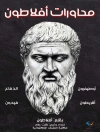As a student of Socrates, Xenophon, like Plato, is an authority on Socrates. Except for the dialogues of Plato, Xenophon’s writings are the only surviving representatives of the genre of Socratic dialogue. These works include Xenophon’s Apology, Memorabilia, Symposium, and Economist. The Symposium outlines the character of Socrates as he and his companions discuss what attribute they take pride in. In Economist, Socrates explains how to manage a household. Both the Apology and Memorabilia defend Socrates’ character and teachings. The former is set during the trial of Socrates, essentially defending Socrates’ loss and death, while the latter is a defense of Socrates, explaining his moral principles and that he was not a corrupter of the youth.
Content:
Introduction:
The Life of Socrates
Socrates According to Xenophon:
Memorabilia
Apology
The Economist
Symposium
Hiero
लेखक के बारे में
Xenophon of Athens (c. 431 BC – 354 BC) was an ancient Greek philosopher, historian, soldier, mercenary, and student of Socrates. Xenophon’s works span several genres and are written in plain-language Attic Greek, for which reason they serve as translation exercises for contemporary students of the Ancient Greek language. As a historian, Xenophon is known for recording the history of his time, the late-5th and early-4th centuries BC, in such works as the Hellenica, which covered the final seven years and the aftermath of the Peloponnesian War (431–404 BC), thus representing a thematic continuation of Thucydides’ History of the Peloponnesian War.












